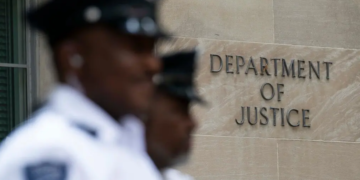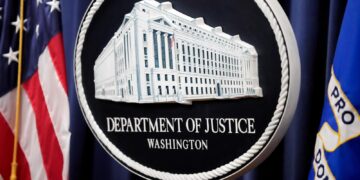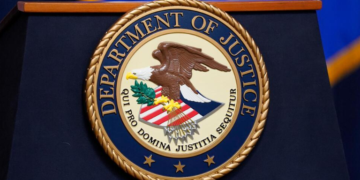Oct 12, 2024 Story by: Editor
The U.S. Justice Department has filed a lawsuit against Virginia for removing voters from the registration rolls too close to the upcoming presidential election, which is scheduled for November 5. The legal action, initiated on Friday, challenges an executive order issued by Virginia’s Republican Governor Glenn Youngkin in August.
The order called for the removal of individuals from the voter rolls if the state’s Department of Motor Vehicles was “unable to verify that they are citizens.” However, the Justice Department contends that this action violates the National Voter Registration Act (NVRA), which mandates a 90-day “quiet period” before federal elections. This period restricts systematic voter removals to avoid errors that could disenfranchise eligible voters.
“Congress adopted the National Voter Registration Act’s quiet period restriction to prevent error-prone, eleventh-hour efforts that all too often disenfranchise qualified voters,” stated Assistant U.S. Attorney General Kristen Clarke, adding, “The right to vote is the cornerstone of our democracy and the Justice Department will continue to ensure that the rights of qualified voters are protected.”
Governor Youngkin issued the executive order on August 7, marking 90 days before the election, and has defended the action as lawful. In a statement, he claimed, “Virginians – and Americans – will see this for exactly what it is: a desperate attempt to attack the legitimacy of the elections in the Commonwealth, the very crucible of American Democracy.”
Youngkin also pledged that state authorities would vigorously defend the order, saying, “Virginia’s election will be secure and fair, and I will not stand idly by as this politically motivated action tries to interfere in our elections, period.”
The lawsuit comes amid increasing efforts by Republicans, including allies of former President Donald Trump, to raise concerns about potential election fraud. These claims often echo the unfounded allegations about the 2020 election, where Trump has falsely maintained that widespread voter fraud occurred. Some Republican officials have also advanced baseless claims that noncitizens are voting in numbers significant enough to sway election outcomes, despite U.S. law permitting only citizens to vote.
State-level measures in Texas, Tennessee, Ohio, and Alabama have increased requirements to prove voter citizenship, raising concerns among democracy advocates that such steps could disenfranchise legitimate voters. A study by the Brennan Center for Justice, a non-partisan policy organization, found that noncitizen voting in the U.S. is exceedingly rare, with no evidence it influenced any recent elections. In the 2016 election, for example, only 30 out of 23.5 million votes were flagged for suspected noncitizen voting.
This legal challenge highlights the ongoing debates around voter registration and the balance between ensuring election security and protecting voter access. Source: Aljazeera


![On September 20, voters in Alexandria, Virginia, began casting their ballots as early voting opened [Nathan Ellgren/AP Photo].](https://blkpoliticsnow.com/wp-content/uploads/2024/10/wdsa-574x375.png)













